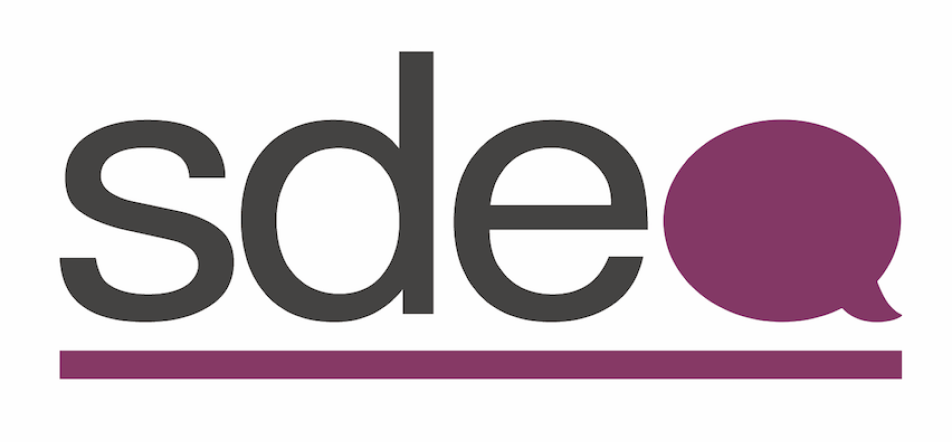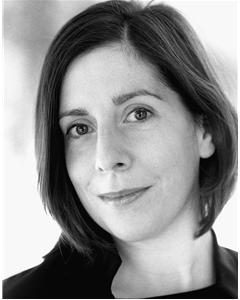
Laura Hayes trained at the Royal Conservatoire Scotland and at the É__cole Internationale de Théâtre Jacques Lecoq. Her teaching includes work for the Royal Shakespeare Company, Touchstone Shakespeare Theatre, Polka Theatre, Dundee College and currently, NAFA. Acting experience includes work at the Tron, Southwold Rep, and for Dreamthinkspeak.
1. What are you working on at the moment?
I make theatre with the collective Autopoetics. We are currently working on our first piece together, Provenance and will present it in January or February 2018. It’s partially based on my great-aunt who was a hoarder, but re-imagined around a mother- daughter relationship.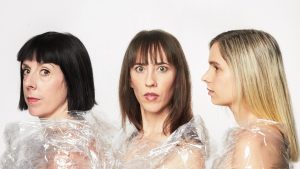
Provenance explores the value we give to things and people, and the connection between art, beauty, relationships, and commerce. It asks if a beautiful piece of art’s worth depends on where it comes from, and what happens if the balance in our relationships with people and with things tilts too far in one direction?
It’s also an experiment in devising techniques. I’ve created a concept called a (play)box, which combines different devising stimuli and processes to make the world of a play - original text, objects, images, clips of music and film. A (play)box is literally a box of stuff – a material provocation to make a play that takes the place of a traditional script.
2. What’s the direction of your work? Has it changed over the years?
I went to a very traditional conservatoire acting school – the Royal Conservatoire Scotland – when I was 19 and did a three-year degree in classical acting. So, Shakespeare, Greek Tragedy and Chekov. We also had classes in voice and movement and as part of movement we explored devising, which I had already encountered when I was a member of the National Youth Theatre and Manchester Youth Theatre. I discovered that I absolutely loved _making_theatre, being part of every aspect - making decisions about the fabric of the piece and its aesthetic, rather than staying only as a performer (though with the right director that can be very exciting too).
Initially, a lot of the work I did when I left drama school was that more traditional kind of work (which I also love, particularly Shakespeare). But my interest in theatre-making eventually led to me spending two years in Paris studying at L’École Internationale de Théâtre Jacques Lecoq. That was a really magical time for me. Each week you are given a title and you have to make a short piece of theatre which explores what you have been studying in class. I remember sitting watching the second week of those presentations (they call them autocours – self lessons) and thinking, ‘this is my place, this is where I belong’, and at the same time ‘why did it take me so long to get here?!’.
So, I’ve moved from being an ‘actor’ in that more traditional sense to becoming a theatre-maker.
**
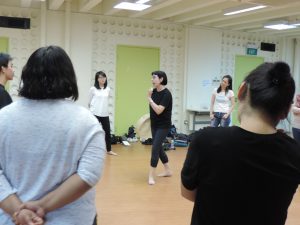
3. What is a dream project that you hope to do?**
I think I’m doing it – making work with my little theatre collective, writing and devising and teaching. It would be great to be able to tour _Provenance_and to keep on making work, maybe with a little bit more time to spare!
4. How did you start out doing what you do?
A lot of people in my father’s family, including his parents, were actors, so while growing up I was taken to the theatre from an early age and sometimes I’d get to go backstage. I got completely hooked. I grew up in London and from my mid-teens I started going to watch plays in town on my own. I would save up the money I earned babysitting and find different ways to get cheap tickets. I’d often stand or get day seats. So, I saw amazing theatre – shows by Lepage, and Complicite, the first performances of most of Sarah Kane’s plays, as well as more mainstream theatre at the Royal Shakespeare Company, the Donmar Warehouse and the National. I also did lots of theatre classes and was a member of the National Youth Theatre and the Manchester Youth Theatre.
I was always bugging my parents to let me be an actor, they wanted me to go to university and become a lawyer, but they let me go to drama school after my A-Levels. After graduation, I started teaching alongside my acting work, quickly discovering that I loved it as much as I loved performing.
5. How do you keep your work fresh?
As well as going to the theatre, I read, go to art galleries, to the cinema and I’ve always attended workshops whenever I can (thank you SDEA for a few of those!) In the past my reading was mainly fiction, but at the moment I’m studying for an MA by research so I’m reading lots of theatre theory. While it’s definitely one of the hardest things I’ve done because it’s so self-directed - just me and a pile of books at a time I’d rather be fast asleep - I find reading those books (usually) exciting and invigorating. I’m finding that those ideas are really feeding into my creative work and definitely into my teaching. Learning from other people and places helps me to keep progressing my own teaching and performing.
6. What do you think makes a perfect drama educator?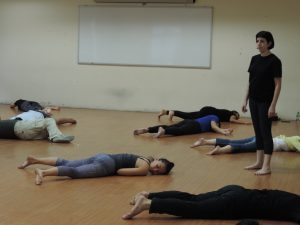
It’s a bit like stand-up comedians – Amy Schumer and Eddie Izzard are funny in their own particular ways, but they wouldn’t be if they tried to be like each other. We’re all different and unique in our own ways. I think you must be true to yourself and to your passions as an educator. If you love what you teach, then that passion comes through. But you can’t be a brilliant educator in the way that someone else is, so _perfect_is relative.
7. Why is drama important? Why should it be taught in schools?
Drama helps people expand their horizons. It provides a place for people who don’t fit into the narrow lines of a text book. This is a dark example, but I was reading an article recently about children rescued from parents who had held them captive and abused them for many years. It described how as part of their rehabilitation they were going to expose these children to nature, music and art. Theatre, music, art and nature are where meaning and happiness come from in life.
8. Who was the drama educator that has the most impact on you?
Ahh – too many! I had some amazing teacher/mentors both at RCS and at Lecoq (particularly Eve Jamieson and Jos Houben). When I was in my 20’s after leaving drama school I took classes in Shakespeare from the first folio at the Actor’s Centre in London with an actress and director called Kelly Hunter, who then invited me to work with her company, Touchstone Shakespeare Theatre. Touchstone use Shakespeare to work with people with special needs, particularly those on the Autistic spectrum. She now runs Flute Theatre who do similar things. She was an amazing teacher and mentor to me. I learnt a huge amount about Shakespeare from her, but also about how to be an educator.
**
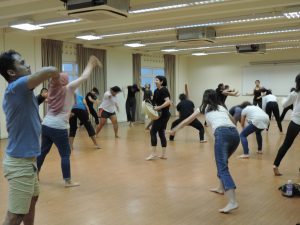
9. What is your most memorable moment in the classroom/on stage?**
Working with Touchstone with a group of young people on the Autistic spectrum I saw how drama can help people change and connect with others. I remember the first time we met one boy he spent the entire session rolled up in a ball at the side of the room. By the end of one term working with him he was up on his feet, taking part, speaking lines from Shakespeare, sharing his imagination with us. That was so wonderful to be a part of.
10. Share a drama activity that you love to do.
As my students will tell you, I think Lecoq’s pedagogy is amazing. Each time I teach it I find new things within it that are exciting to me. I love working with the neutral mask – it’s a simple, beautiful mask that helps you to uncover your beauty and simplicity as a performer. It helps you focus and clarify your imaginative thought process and physical objectives. I also love Lecoq’s choral spatial balancing exercises.
11. What do you hope to see in Singapore's drama/theatre landscape in future.
I hope to see my students from NAFA. I’ve taught so many amazing people here and they’ve shared with me some of their hopes and dreams. I want to see their hopes and dreams realised in Singapore’s theatre landscape.
12. In one word, sum up your drama education journey.
Collaboration.
